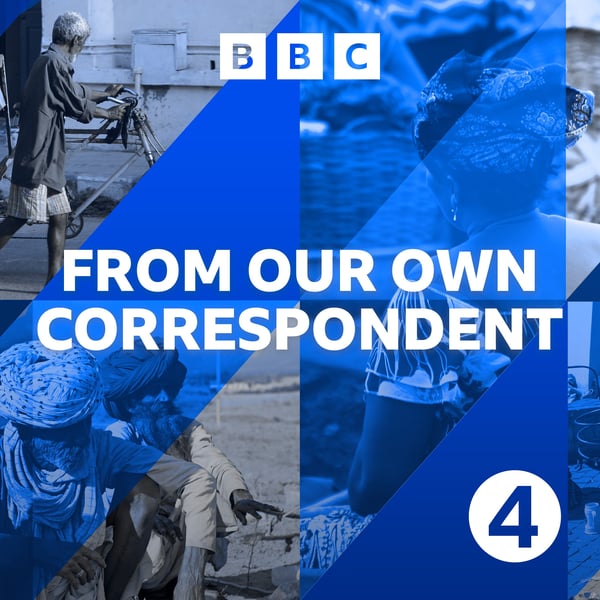The Yazidis Still Missing In Iraq
From Our Own Correspondent
BBC
4.4 • 1.3K Ratings
🗓️ 8 September 2018
⏱️ 29 minutes
🧾️ Download transcript
Summary
Some are buried in mass graves; others are still in the hands of Islamic State militants. Kate Adie introduces stories from Iraq, Chile, India, Colombia, and Sweden: Four years since IS swept through northern Iraq and carried out what the UN called a genocidal attack on the Yazidi people who lived there, Lyse Doucet returns to see what remains. Linda Pressly meets a Chilean woman who posed as a young boy online in her quest to get her local priesthood investigated. Vivienne Nunis learns how women and their pink rickshaws are transforming the working world in Jaipur - much to the disapproval of some local men. Nick Thorpe makes the long journey through the Sierra Nevada de Santa Marta mountain range to reach the Ciudad Perdida – the Lost City which was abandoned by the indigenous people who once lived there when Spanish conquistadors arrived at the Colombian coast in the 16th century. And Gabriel Gatehouse has a mysterious but revealing encounter with a real-life troll in Stockholm.
Transcript
Click on a timestamp to play from that location
| 0:00.0 | This is the BBC. |
| 0:04.0 | Hello. Today, uncovering abuse by Catholic priests in Chile, |
| 0:08.8 | we meet the woman who got the church and the police to investigate the allegations and the women changing the world of work in India one rickshaw ride at a time. |
| 0:19.0 | In the Colombian mountains we make the long journey to a lost city and in proudly liberal Sweden our |
| 0:26.1 | correspondent charts the rise of the anti-immigration right and has a mysterious |
| 0:31.1 | encounter with a real life troll. |
| 0:35.0 | It's just over four years since Islamic State or IS stormed through the area around Mount |
| 0:41.6 | Sinjar in northern Iraq and launched what the UN has |
| 0:45.1 | described as a genocidal attack on the Yazidi people who lived there. Women and |
| 0:50.6 | girls were enslaved. Men forced to fight for the militants, convert to Islam or face execution. |
| 0:57.0 | Today, hundreds of thousands of Yazidis now live in displacement camps scattered across Iraq's northern Kurdistan region. |
| 1:06.4 | Others are thought still to be in the hands of IS. |
| 1:09.8 | Leise-Drosette went to see what remains of one of the villages they were taken from. |
| 1:14.9 | The silence, that's what hits you first, and it never leaves you. |
| 1:20.6 | Streets without people or cars, Broken shells of empty homes, a school without school children. |
| 1:28.1 | Just silence. A chilling silence. This is Kocchio. The village Islamic State tried to wipe off the map. But Kocchio lives |
| 1:37.6 | in the mind of every villager who survived a massacre, in the memory of a monstrous campaign to eradicate the Azidhi's ancient |
| 1:46.1 | culture in this far corner of Iraq. Visiting Kocchio is like traveling across a mammoth crime scene, a war crime. |
| 1:56.0 | On the second floor of the village school, traces remain, desks in a jumble coated with dust, mattresses strewn across the cement floor. |
| 2:05.8 | Camouflage clothing lies in a dirty heap. |
| 2:09.4 | In the room next door, a man's crumpled trousers, a woman's bra. Someone has scrawled a date in the dust, August 15, 2014. |
| 2:21.0 | That's the day I S marched. marched everyone in Cotia to this school and separated women from the men. |
... |
Please login to see the full transcript.
Disclaimer: The podcast and artwork embedded on this page are from BBC, and are the property of its owner and not affiliated with or endorsed by Tapesearch.
Generated transcripts are the property of BBC and are distributed freely under the Fair Use doctrine. Transcripts generated by Tapesearch are not guaranteed to be accurate.
Copyright © Tapesearch 2025.

